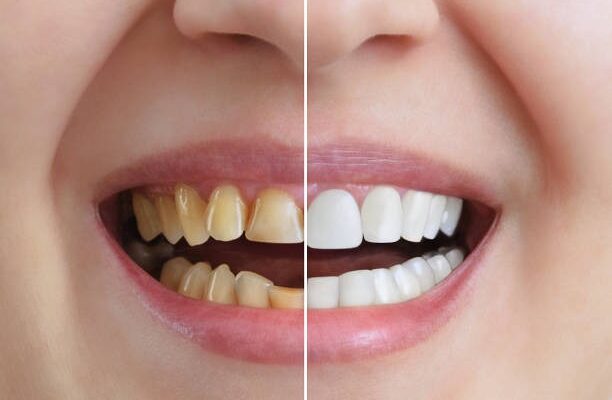Going to the dentist isn’t exactly anyone’s idea of fun. The minty smells, the strange noises, and the unknown procedures can be daunting. If you’ve ever found yourself sweating at the thought of a dental visit, you’re not alone. Dental anxiety is a common issue that many people face. It’s more than just being a little nervous. Anxiety can manifest as a racing heart, shortness of breath, or even full-blown panic attacks.
Why We Fear the Dentist
But why are dental visits so terrifying? Well, there are a few reasons. Some people fear pain based on past experiences. Others might fear losing control while sitting in the dentist’s chair. Still, for others, it may just be the fear of the unknown. Additionally, the mere thought of dental tools can set off alarm bells for many. However, understanding these fears is the first step toward overcoming them.
1. Preparing for a Dental Visit
Preparation can do wonders in calming your nerves before a dental appointment. First things first, acknowledge your fears. Speaking about them openly can lighten the psychological load and make them less intimidating. Consider scheduling an appointment during a less busy time, such as mid-morning. This way, you won’t have the rest of the day to dwell on it.
Communicate with Your Dentist
Your dentist should know about your anxiety. Most dentists are aware that dental anxiety exists and are more than willing to accommodate your needs. They will often take extra time to explain the procedures and signal breaks and ensure a pain-free experience. Open communication is key. Establishing a signal, like raising your hand, can be a lifesaver if you need a moment during the procedure.
Checklist for the Visit
-
Write down any questions you have before the visit.
-
Bring headphones for music or podcasts.
-
Use relaxation techniques, such as deep breathing, before the visit.
-
Consider bringing a friend or family member for support.
2. Techniques for a Stress-Free Experience
Now that you’ve prepared let’s explore some techniques to make your dental appointment fly by with ease. First, practice breathing exercises. Deep, slow breaths can help reduce stress by increasing oxygen to your brain and calming racing thoughts.
Distraction is Key
Here’s the thing about anxiety: it loves having your full attention. Distracting yourself during dental appointments can be greatly beneficial. Try listening to your favorite tunes or an engaging podcast. Some dental clinics even allow patients to watch TV shows during their procedures. Immersing yourself in another activity can make the experience seem shorter and more pleasant.
Visualization and Meditation
Another technique you can use is visualization. Picture yourself in a happy place—a beach, a park, or anywhere that brings you peace. Visualizing positive scenarios can divert your mind and promote relaxation. Meditation apps can also help by providing soothing guides to ease your nerves.
3. Professional Help is Available
If anxiety continues to be overwhelming, seeking professional help might be a wise step. Therapists can offer cognitive-behavioral therapy (CBT) to help manage and reduce dental anxiety. This type of therapy introduces ways to reframe your thoughts and change your emotional response to the dentist’s chair.
Sedation Dentistry
In some cases, sedation dentistry offers a viable option for those unable to cope with their fears. Options range from mild sedatives that allow patients to be relaxed yet conscious to general anesthesia for more intricate procedures.
4. Finding the Right Dental Professional
Having a dentist you trust can make a world of difference. When searching for a dental professional, look for reviews or ask for recommendations from family and friends. Take your time to find a practitioner who understands dental anxiety and offers a soothing environment.
For those looking to enhance their smiles, exploring orthodontics treatment in Harrison could not only improve aesthetic appeal but also contribute to resolving spacing issues that might have previously caused discomfort or anxiety during routine checkups. It’s essential to find a team that understands comprehensive care.
5. Choosing a Pediatric Dentist
Finding the right dental care for children is crucial. Kids might be frightened by dental visits, too, which makes it important to choose a pediatric dentist nearby who is skilled in creating a friendly and calming environment for young patients. The earlier a child learns that dental visits are nothing to fear, the better equipped they’ll be for future appointments.
6. Cosmetic Dentistry and Anxiety
Some people might feel uneasy about the idea of making aesthetic changes to their teeth. However, having concerns about one’s appearance can also be a source of distress. Therefore, visiting a professional in cosmetic dentistry near you can provide comfort and confidence, making any dental work seem more like a collaborative process rather than a daunting task. Since this field often involves less invasive procedures, it can serve as an excellent introduction to becoming familiar with dental environments.
Getting Comfortable with Regular Checkups
Regular dental visits shouldn’t be a source of stress. In fact, they are opportunities to catch potential issues early and save you from more extensive work down the road. By adopting good oral hygiene habits at home, you can make each dental visit quicker and less troublesome. Trust me, the feeling of a clean mouth leaving that office is worth it.
7. Self-care and Dental Health
Did you know your lifestyle choices can have a direct impact on your dental health? Practicing self-care not only improves overall well-being but also contributes to healthier teeth and gums. Prioritize a diet rich in calcium and vitamins, and remember to brush and floss regularly. A healthy smile is a confident one.
Mindset Matters
It’s all about mindset. Reframe your thoughts around dental visits by focusing on the positive aspects. View each visit as a step toward better health, not just for your mouth but your entire body. Remember, you’re investing in yourself, and that’s something to smile about.
Final Thoughts
Overcoming dental anxiety is entirely possible with a bit of preparation, communication, and the right coping mechanisms. By taking active steps against this fear, you’ll not only make dental visits stress-free but also ensure better oral health in the long run. If you’ve been putting off that appointment, now is the time to face your fears head-on. You can handle this, and your teeth will thank you.




